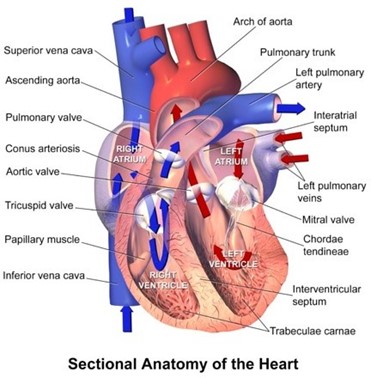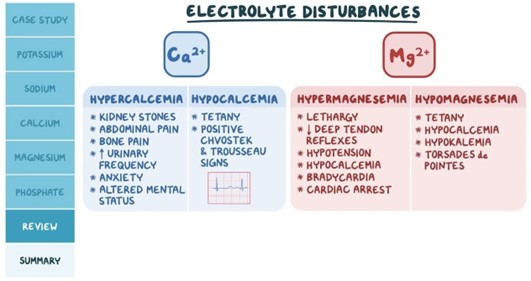A patient newly diagnosed with heart failure understands that heart failure means there is a lack of sufficient blood supply to the patient's tissue throughout the body tells you that the is responsible for pumping blood from the hear t to the lest of the body.
Left Ventricle
Left Atria
Right Atria
Right Ventricle
The Correct Answer is A
The left ventricle is responsible for pumping oxygen-rich blood from the heart to the rest of the body. In heart failure, the left ventricle is weakened and unable to pump blood efficiently, resulting in reduced blood flow to the body's tissues. This can lead to symptoms such as fatigue, shortness of breath, and swelling in the legs and feet. Treatment for heart failure may include medications, lifestyle changes, and in some cases, surgical interventions such as a heart transplant.

Nursing Test Bank
Naxlex Comprehensive Predictor Exams
Related Questions
Correct Answer is D
Explanation
This outcome is the most appropriate because smoking can worsen COPD and lead to further respiratory complications, while oxygen is often used to help patients with COPD breathe more easily. Smoking while wearing oxygen can be very dangerous and increases the risk of fire and explosion. Therefore, the best expected outcome is for the patient to completely avoid smoking while wearing oxygen.
Option a is not a recommended solution since vaping may also worsen COPD symptoms and there is limited evidence of its safety in people with respiratory conditions. Option b is a good outcome, but it may not be achievable in such a short time frame. Option c is not an ideal outcome as even a few cigaretes can cause harm to the respiratory system, exacerbate symptoms, and slow down the healing process.
Correct Answer is ["A","B","E"]
Explanation
These are all electrolyte imbalances. Hyperkalaemia is an elevated level of potassium in the blood. Hypocalcaemia is a low level of calcium in the blood. Hyponatremia is a low level of sodium in the blood. Thrombocytopenia and anemia are not electrolyte imbalances. Thrombocytopenia is a low platelet count and anemia is a low red blood cell count or low hemoglobin levels.

Whether you are a student looking to ace your exams or a practicing nurse seeking to enhance your expertise , our nursing education contents will empower you with the confidence and competence to make a difference in the lives of patients and become a respected leader in the healthcare field.
Visit Naxlex, invest in your future and unlock endless possibilities with our unparalleled nursing education contents today
Report Wrong Answer on the Current Question
Do you disagree with the answer? If yes, what is your expected answer? Explain.
Kindly be descriptive with the issue you are facing.
